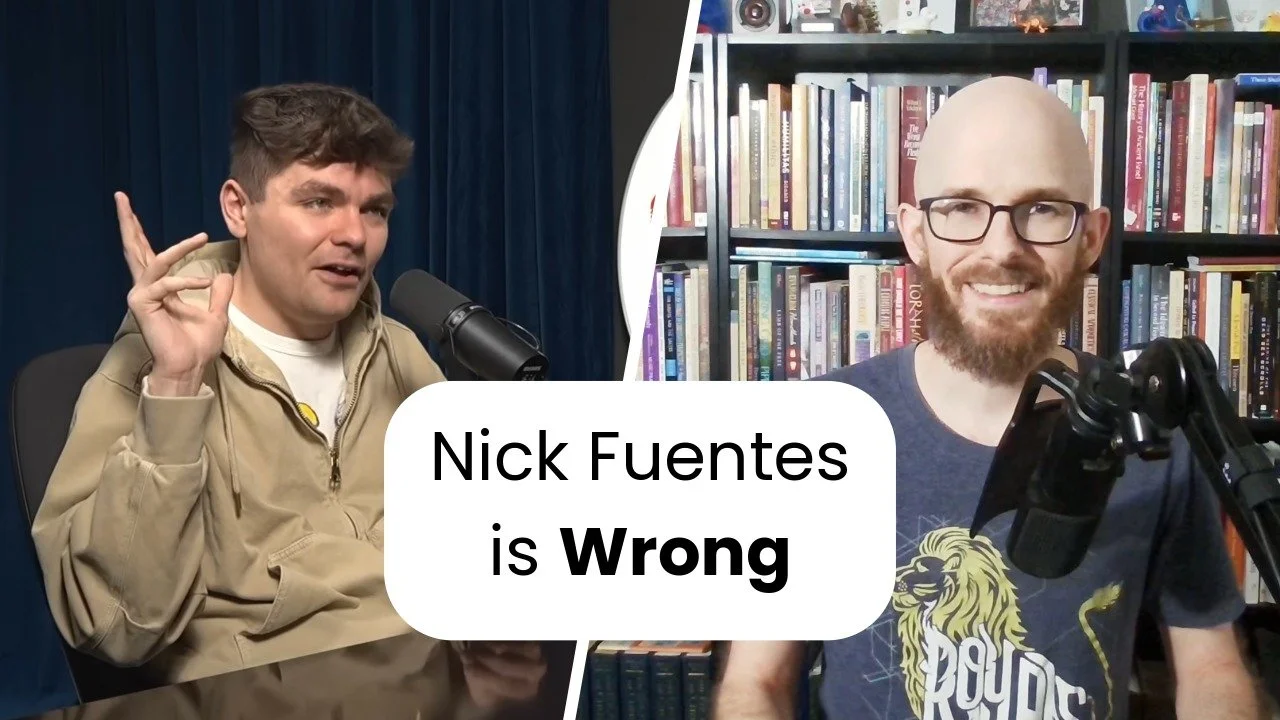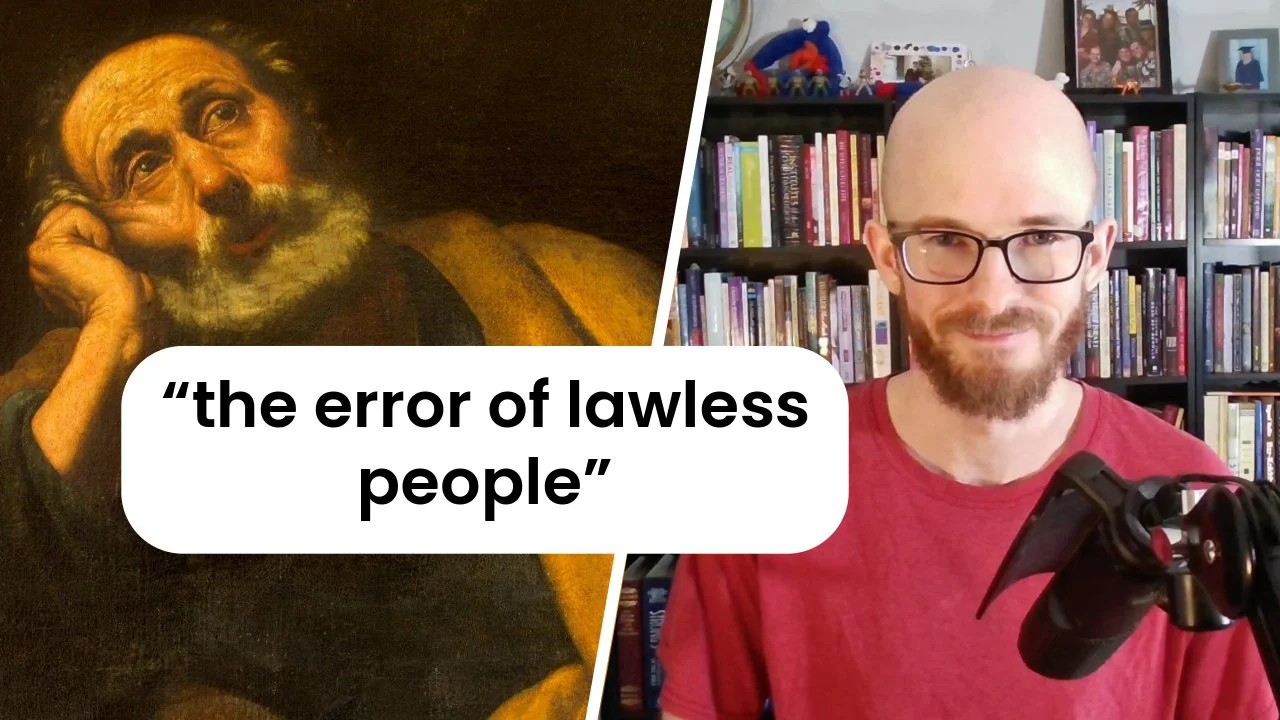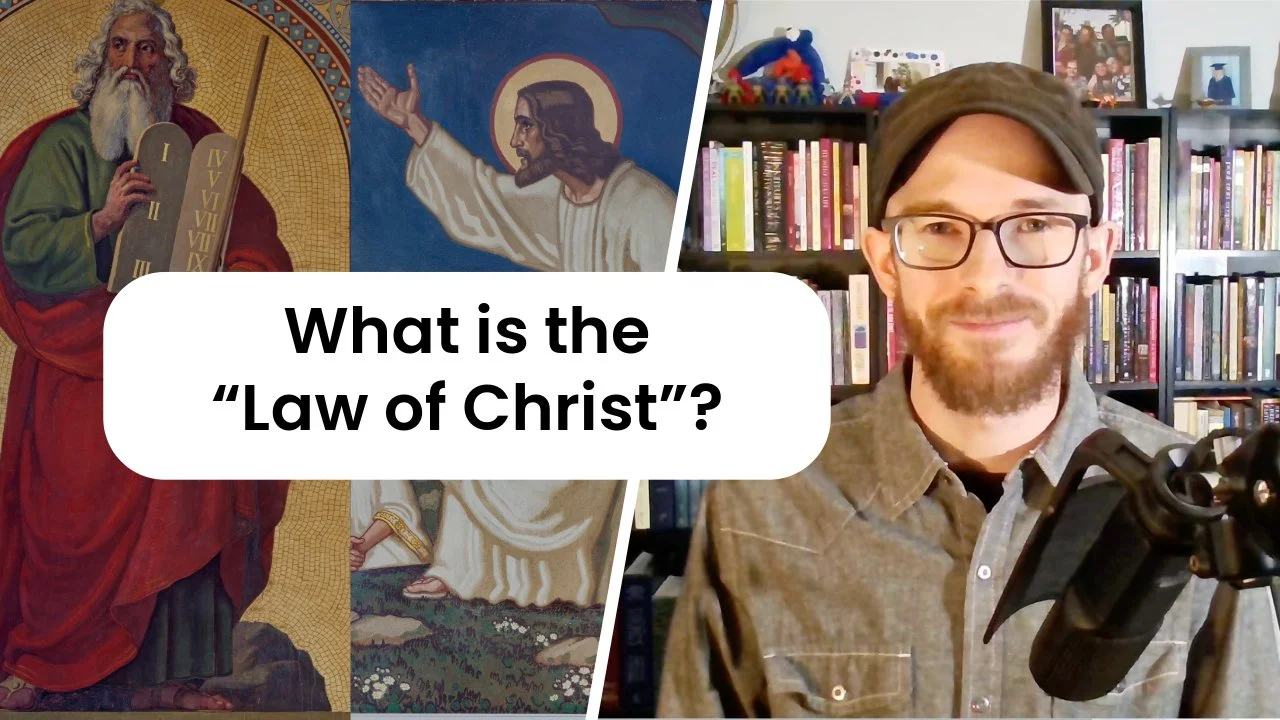Nick Fuentes claims that the New Testament has replaced the Hebrew Scriptures ("Old Testament"), that Jesus has replaced the Law of Moses, and that Christians have replaced Israel. This video explains why he is wrong.
The Law and the Promise (Interview w/ Jonathan A. Brown)
Is the Law contrary to God’s promise? According to Paul in Galatians 3:21, the answer is no. However, many Christians interpret Paul’s letter to the Galatians in the exact opposite way. Galatians is often regarded as the definitive rejection of Torah observance for believers. But is that view biblical? That’s the subject of the new book, “The Law and the Promise: A Pronomian Pocket Guide to Galatians 3–4” by Jonathan Brown. I’m excited to have Jonathan with us to discuss his book and why we should take seriously Paul’s own answer to this question.
What is Pronomian Theology?
Pronomian theology, or pronomianism, is a way of reading Scripture that affirms the ongoing authority of God’s Law given through Moses (Torah). In this video, we explore how pronomianism contrasts with antinomianism and how various Christian communities like Messianic Judaism and the Seventh Day Baptists approach the Torah today. If you’ve ever wondered about the relevance of commandments such as the Sabbath, festivals, and food laws in Christian ethics, this short video will give you a basic introduction to pronomian theology.
How to Celebrate Yom Teruah / Rosh Hashanah
Jesus and the Law of Moses (Interview w/ Dr. Paul Sloan)
What if Jesus’s disputes with other teachers over the Law of Moses weren’t about criticizing legalism or external rituals? What if, as the authoritative interpreter of the Law, Jesus was actually criticizing misinterpretation and transgression? In his new book, Jesus and the Law of Moses, Dr. Paul Sloan offers a fresh perspective on how the Gospels depict Jesus’s teaching on the Law—and this perspective challenges some common assumptions about Jesus’s relationship to the Law. I’m thrilled to welcome Dr. Sloan to the channel to discuss his book.
The Jerusalem Council: Applying the Torah to Gentiles (Acts 15)
Is the Torah (Law of Moses) relevant to Gentile followers of the Messiah? Many say no, citing the Jerusalem Council event in Acts 15 as proof. In this message, David Wilber challenges that common interpretation through a careful reading of this passage within its historical and theological context. Far from rejecting the Torah, we’ll see how the apostles wisely and faithfully applied the Torah to Gentile believers joining the Messianic Jewish community.
Love and the Law: A Pronomian Reading of John 14:15 (Interview w/ Dr. Benjamin Szumskyj)
Jesus told his disciples, “If you love me, you will keep my commandments.” But what exactly did he mean his commandments? Was he referring only to the commandment to love, only to the teachings given during his earthly ministry, or also to the commandments found in the Torah (Law of Moses)? That is the subject of the new book by Dr. Benjamin Szumskyj titled Love and the Law: A Pronomian Pocket Guide to John 14:15. I’m excited to have Dr. Szumskyj with us to today discuss his book on this important verse.
It is Not "Satanic" to Agree with the Apostolic Decree
A popular account on X (formerly Twitter) recently labeled me a “Judaizer” for agreeing with the Apostolic Decree in Acts 15:20. Other folks then piled on, calling me “Satanic,” a “heretic,” and all sorts of other names. In this video, I’ll explain why it should not be controversial to believe that the four commandments of the Apostolic Decree are still relevant. As I’ll demonstrate, these four commandments are consistently affirmed throughout the New Testament and early Christian writings.
Did Peter's Vision in Acts 10 Abolish God's Food Laws? (Interview w/ R. M. Bailey)
Did God revoke his food laws? Did he abolish the distinction between clean and unclean animals? Many argue that he did based on Peter’s vision in Acts chapter 10. However, recent scholarship is challenging that interpretation. In his new book, Whom God Has Made Clean: A Pronomian Pocket Guide to Acts 10:9–15, my guest, R. M. Bailey, argues that Peter’s vision isn’t about food at all. Bailey challenges popular antinomian interpretations and offers a pronomian reading that better fits both the immediate context and the broader biblical narrative. I’m excited to talk to him about this important passage.
"Nothing is Unclean"? Examining Romans 14:14 (Interview w/ Rob Vanhoff)
What did Paul mean in Romans 14:14 when he wrote, "nothing is unclean in itself"? Did he believe that the Torah's distinction between clean and unclean food had been erased? Or is he talking about something else entirely? Joining me today to discuss this is Rob Vanhoff. He is a biblical scholar, author, and instructor at TelosTorah Bible Academy. I'm excited to have Rob with us to talk about this passage.
Does the Torah Speak to the Value of the Unborn? (Interview w/ Dr. Carmen Imes)
What does the Torah say about the value of the unborn? There is an interesting law in Exodus 21:22-25 that speaks to this question. Here to discuss this with me is Dr. Carmen Imes, an Old Testament scholar, author, and Associate Professor at Biola University’s Talbot School of Theology. She’s currently working on a commentary on Exodus and brings valuable insights into this important passage. We also explore how this passage informs contemporary debates about abortion.
Marital Intimacy on the Sabbath: Does it Violate the Commandment?
What Wes Huff Got RIGHT About the Sabbath on the Joe Rogan Experience
Rabbi Tovia Singer is Wrong About Paul's Position on the Law of Moses
In a recent video, Rabbi Tovia Singer argues that Paul detested the Law of Moses and taught that Christians don’t need to keep it. However, Rabbi Singer’s objection relies on an outdated, antinomian reading of Paul, which does not accurately reflect the true Paul depicted in the Pauline epistles and Acts. In this video, we address Rabbi Singer’s claims and clarify Paul’s stance on the Law of Moses.
Peter's Warning About the Antinomians Who Twist Paul's Letters (2 Peter 3:15-17)
In 2 Peter 3:15-17, Peter warns that Paul’s letters contain content that is “hard to understand” and which “the ignorant and unstable” misinterpret. He then connects the mishandling of Paul’s letters to “lawless people.” In this video, I argue that 2 Peter 3:15-17 represents Peter’s warning regarding antinomians (individuals who reject God’s law) who misinterpret passages in Paul’s letters to advocate for lawlessness.
The Law of Christ vs. the Law of Moses? (Galatians 6:2; 1 Corinthians 9:21)
The expression “law of Christ” appears only two times in the New Testament (Galatians 6:2; 1 Corinthians 9:21). Traditionally, interpreters have frequently understood this expression to refer to a new “law” or ethic that supersedes the law of Moses. However, there is a growing scholarly consensus that “law of Christ” directly refers to the law of Moses in some sense. This video makes a case for interpreting the phrase “law of Christ” in Galatians 6:2 and 1 Corinthians 9:21 as a reference to the law of Moses as it is taught and exemplified by Christ.

















